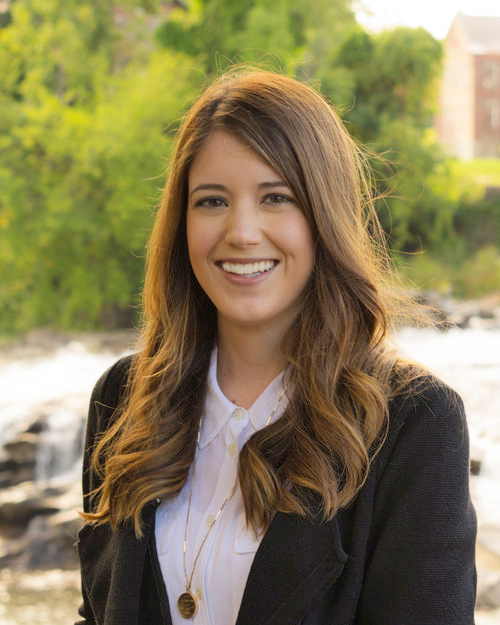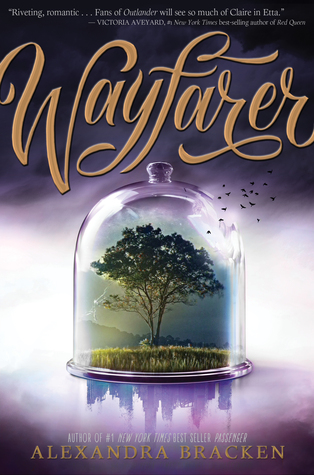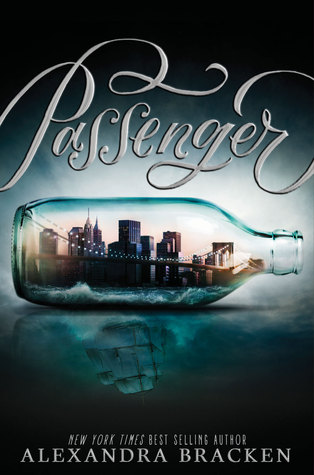
Alexandra Bracken is the author of the Passenger series. The following is the complete transcript of Alexandra’s interview with Cracking the Cover for “Wayfarer.”
Why do you write?
There are definitely two answers to this question! For me, I write because I’ve always felt an inclination to and have always had a seemingly natural love for the process. I think creativity manifests in different ways for different people, and this happens to be the way it’s shown up in me.
But I also write because I want to create stories that provide an escape for people, that make them feel something, and moves them in some way. I was a voracious reader as a kid (and still am!) and my hope is always that I can create that same magic for readers today that I felt.
Why specifically for young readers?
This is maybe odd, but I’ve only ever aspired to write stories for young readers. Seriously! I knew I wanted to be a writer when I was in third grade. Our teacher had us do a number of different creative writing units, including a short story one. We illustrated them and she bound them up with cardboard and contact paper—it seriously was like magic, and I loved the feeling of that little book in my hands.
I was reading a ton of Avi and Roald Dahl at the time and loved those stories for their adventure and humor. I obviously had never read an adult book at that point, but I wanted to write those kinds of the stories, with characters that were experiencing the same sort of feelings and mundane life things I was, even if they were sailing on a tall ship or flying on a giant peach. I sort of naturally fell into writing YA because of when I first starting trying for publication. I wrote my first published novel (Brightly Woven) my sophomore and junior year of college, when I was still very much a young adult myself.
 Where did the idea for the Passenger series come from?
Where did the idea for the Passenger series come from?
It actually came from my college experience! I’d been thinking about writing a time travel story from freshman year onwards thanks to my somewhat unique college experience at William & Mary. If you’ve never been, the university sits at one end of Colonial Williamsburg, which is a living history reenactment of the town in the 18th century. You’re meant to feel like a time traveler as you’re walking around, and I wanted to capture that feeling of being a fish out of water and juxtaposing your modern day beliefs against 18th century ones.
I also love history and really just wanted an excuse to dive back into doing some serious research (and to justify having kept all of my old textbooks and notes). Initially Passenger was just going to involve a single time jump back to 1776 New York City, but I decided I wanted to lean into the idea of a treasure hunt across time and continents and to push myself to be as inclusive as possible with the story.
Etta starts out the series shy and restrained but that changes as the story progresses. How did her character develop?
You know, there’s usually one character in each book I write that’s a bit of an enigma to me as I’m drafting, and Etta was it. I understood her ambition and her drive from the start, but it was like neither of us could figure out what she actually wanted until several drafts into the process.
It’s interesting, because I wouldn’t actually describe Etta as shy necessarily. She’s had one singular focus for most of her young life as a violinist, which is to have her soloist debut. She’s given up having a “normal” school life, time with friends, a boyfriend, and so on in pursuit of that. Not to mention, she’s grown up with a very distant, mysterious mother, and really suffered some deeply felt loneliness as a child and into her teens. As a New Yorker, though, she can be very direct and charge headlong into things. In fact, I think one of her strengths is that she can roll with the punches, no matter how strange those punches are.
But her arc and development are definitely tied to her mother’s—once Etta learns the truth about her mother and discovers this secret world that’s been hidden from her, she suddenly has a new understanding and focus with something her mother has tasked her with. Etta’s journey is really one about discovery not just about what she actually wants in life, but of her family and the world around her.
If you could travel through time, would you? Where/when?
If you had asked me this a few years ago, I would have rattled off a few intriguing centuries… but after writing this duology, I’m thinking I would only ever want to go into the future. For one thing, I love a good spoiler (hah!), and another… let’s just say that time traveling to the past is probably only good fun if you’re a white guy.
Because your characters are traveling through time, you’ve included a lot of historical details. How did your education help you? How do you decide where to draw the line between fiction and fact?
I studied history and English in school, but, obviously, it was my history degree that really helped me out with this project! One of the greatest gifts my education gave me was the understanding that history is very much a crafted narrative, and often leaves whole groups of people out, or glosses over tragedies and the lives of those who live at the margins of society. My professors also took on a very humanist approach to studying history, meaning we didn’t just memorize dates, but really drilled down into the human condition and how all of these components of society, religion, the economy, and so on are interconnected.
I researched so much for these books—everything from the obvious things (what clothes they’d be wearing, what food they’d be eating, the layout of the places they visited) to the less obvious (consulting the OED to make sure Nicholas wasn’t using an anachronistic terms). I did my absolute best to research everything I could, and yet I’m sure I still missed a few details.
My one rule I had for myself in balancing fact and fiction was that if I couldn’t definitively prove or disprove something existed (for instance, a caravanserai in Passenger, or a bridge in Russia for Wayfarer), and it fit logically into that time period and place, I could include it. I was really resistant to including actual historical figures in Passenger, but couldn’t resist including a big one in Wayfarer (though I won’t spoil who it is!). Other than that, I genuinely tried to find interesting events that could overlap with the narrative of the duology and have the characters experience it.
 What makes Passenger and Wayfarer stand apart from their contemporaries.
What makes Passenger and Wayfarer stand apart from their contemporaries.
There are so many wonderful time travel books out right now—and, actually, more are on the way! I think they stand out for being very character driven, focusing on all sorts of different complex relationships beyond romance, especially within family units. I always say that Passenger is a romantic love story, and Wayfarer is a family story that’s a little more preoccupied with analyzing what we inherit, for better or worse, from our parents—dreams, grudges, and so on.
How did working in children’s publishing shape you as a writer?
Good question! I worked in both editorial and marketing, and I can safely say that in addition to bringing some truly wonderful people into my life, my time working there reaffirmed how subjective taste is, and how important it is to stay humble and grateful. Readers really only see the author when they look at a book, but so many hands have worked on that book over the course of a year or year and a half: editors, managing editors, copyeditors, designers, publicists, sub rights agents, marketers, sales folks… you get the picture! I think it’s really important to acknowledge what a team effort books are.
What are you working on now?
I’m working on copyedits for my next book, which is out September 5th this year. I’m so excited to be diving back into middle grade fiction with The Dreadful Tale of Prosper Redding: A Fiendish Arrangement. It’s the story of the youngest son of a Kennedy-esque family who is the definite black sheep in a family of very famous mega-achievers. When he discovers that they owe all of their prosperity to a deal they made with a nefarious creature around the time their settlement was founded in the seventeenth century, he has to be the one to save them when that same figure comes back for revenge. It’s mostly set around Halloween in Salem, Massachusetts, and involves witches, curses, art, fluffy changelings, and a whole host of other fun stuff. It perfectly captures my dark sense of humor, too!
Is there a book from your own youth that still resonates with you today?
I was just thinking about this the other day, actually. The True Confessions of Charlotte Doyle by Avi had a big impact on me, and actually makes me think I was destined to write something set on a ship. I loved Charlotte’s arc in that book, and that it showed there were so many different ways of being strong.
When I was in high school I really responded to the book The Things They Carried by Tim O’Brien. It was the first book that truly showed me how beautiful and deeply felt stories could be, and it haunts me to this day.
